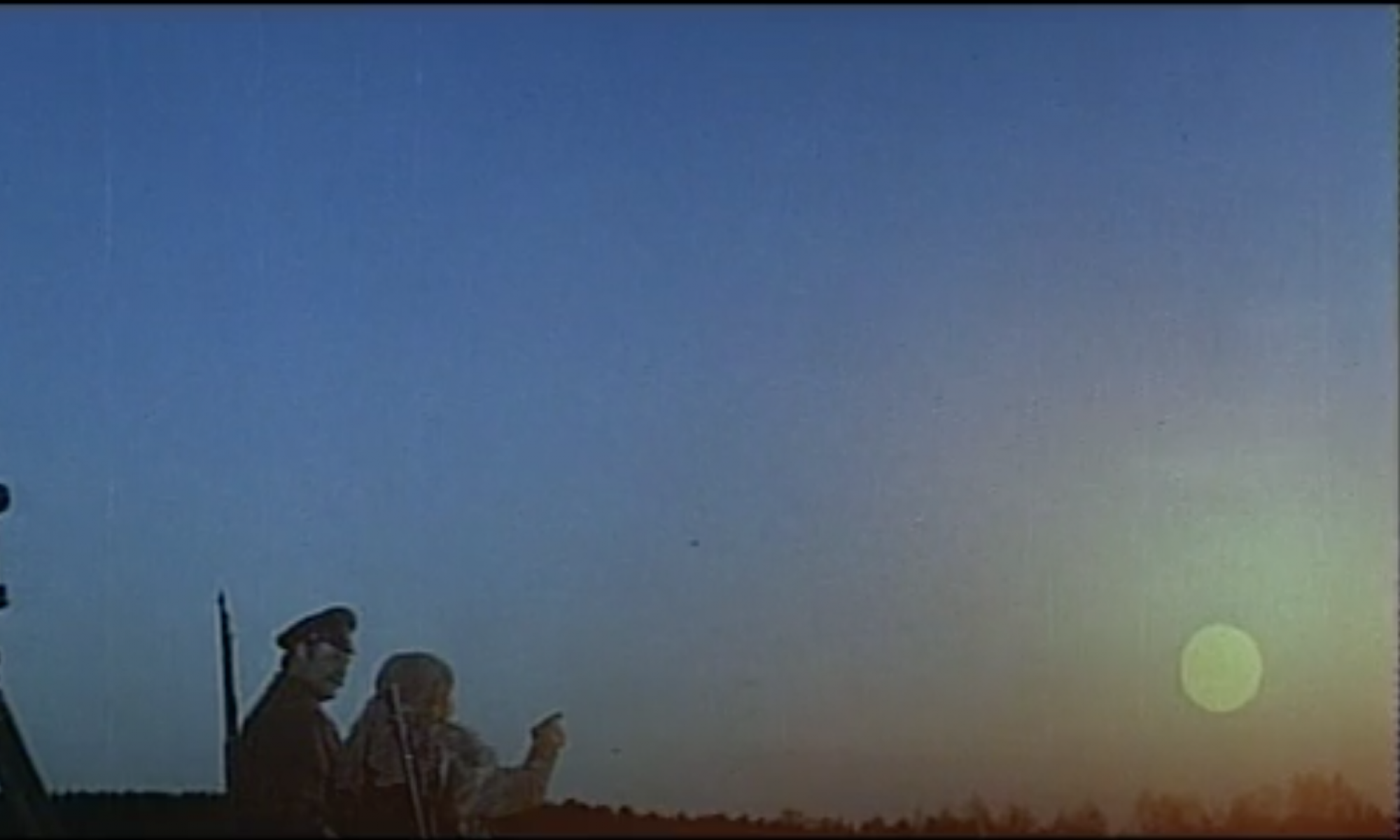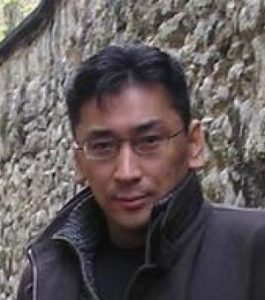 Sho Konishi, Ph.D. University of Chicago, Japanese History. Associate Professor in Modern Japanese History, University of Oxford. Author of Anarchist Modernity: Cooperatism and Japanese-Russian Intellectual Relations in Modern Japan. Harvard University Press, 2013.
Sho Konishi, Ph.D. University of Chicago, Japanese History. Associate Professor in Modern Japanese History, University of Oxford. Author of Anarchist Modernity: Cooperatism and Japanese-Russian Intellectual Relations in Modern Japan. Harvard University Press, 2013.
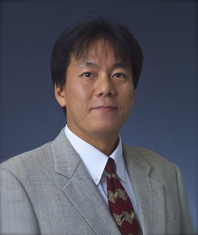
Takashi Nishiyama, Ph.D. in History, The Ohio State University. Associate Professor of History, State University of New York at Brockport. Research Associate, Smithsonian National Air & Space Museum. Author of Engineering War and Peace in Modern Japan, 1868-1964 (Johns Hopkins Studies in the History of Technology, Johns Hopkins University Press, 2014).

Brian Kim, M.A. Stanford University, Japanese; Ph.D. Stanford University, Slavic Languages and Literatures. Postdoctoral teaching fellow in the Program in Writing and Rhetoric at Stanford University. Author of ‘Luminous Words: Prerevolutionary Russian Writers on Foreign Language and the Art of Translation’ (Dissertation, 2016) and ‘Strangers and Wanderers: Japanese Intellectual Travelers in the West, 1884-1906’ (M.A. Thesis).
 Anastasia Fedorova, Ph.D. Kyoto University, Human and Environmental Studies. Ph.D. VGIK (Gerasimov Institute of Cinematography), Moscow, Russia. Assistant to Director, Associate Professor, Institute for Oriental and Classical Studies at Moscow Higher School of Economics. Author of “Big Tokyo” (1933) and the Ideology of Sound.” Japanese Slavic and East European Studies. Vol. 35 (2015): 103-127. Her most recent monograph is Riarizumu no gensō: Nisso eiga koryū shi 1925-1955 [Illusion of Realism: History of Soviet-Japanese Cinematic Interactions, 1925-1955] Tokyo: Shinwasha, 2018.
Anastasia Fedorova, Ph.D. Kyoto University, Human and Environmental Studies. Ph.D. VGIK (Gerasimov Institute of Cinematography), Moscow, Russia. Assistant to Director, Associate Professor, Institute for Oriental and Classical Studies at Moscow Higher School of Economics. Author of “Big Tokyo” (1933) and the Ideology of Sound.” Japanese Slavic and East European Studies. Vol. 35 (2015): 103-127. Her most recent monograph is Riarizumu no gensō: Nisso eiga koryū shi 1925-1955 [Illusion of Realism: History of Soviet-Japanese Cinematic Interactions, 1925-1955] Tokyo: Shinwasha, 2018.
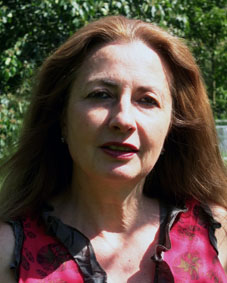 Nadine Willems, DPhil in Japanese History, University of Oxford. Lecturer in Japanese History, School of History, University of East Anglia. Author of ‘Contesting Imperial Geography: Reading Elisée Reclus in 1930s’ Hokkaido’, in White, R., Springer, S. and Marcelo, J.L. (eds.), The Practice of Freedom: Anarchism, Geography, and the Spirit of Revolt (London; New York: Rowman & Littlefield International, 2016) and of “Transnational Anarchism, Japanese Revolutionary Connections, and the Personal Politics of Exile,” The Historical Journal (2017), https://doi.org/10.1017/S0018246X1700019X
Nadine Willems, DPhil in Japanese History, University of Oxford. Lecturer in Japanese History, School of History, University of East Anglia. Author of ‘Contesting Imperial Geography: Reading Elisée Reclus in 1930s’ Hokkaido’, in White, R., Springer, S. and Marcelo, J.L. (eds.), The Practice of Freedom: Anarchism, Geography, and the Spirit of Revolt (London; New York: Rowman & Littlefield International, 2016) and of “Transnational Anarchism, Japanese Revolutionary Connections, and the Personal Politics of Exile,” The Historical Journal (2017), https://doi.org/10.1017/S0018246X1700019X
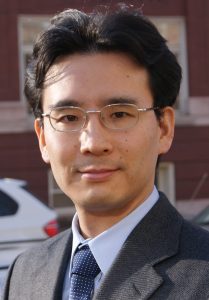 Arata Takeda, Ph.D. German and Comparative Literature, Universität Tübingen. Research Associate and Lecturer, FU Berlin, Friedrich Schlegel Graduate School of Literary Studies, Research Project Aristotelische Verhandlungen. Author of Ästhetik der Selbstzerstörung: Selbstmordattentäter in der abendländischen Literatur (Munich: Wilhelm Fink, 2010) and of “Suicide Bombers in Western Literature: Demythologizing a Mythic Discourse,” Contemporary Justice Review 13.4 (2010): 455-475.
Arata Takeda, Ph.D. German and Comparative Literature, Universität Tübingen. Research Associate and Lecturer, FU Berlin, Friedrich Schlegel Graduate School of Literary Studies, Research Project Aristotelische Verhandlungen. Author of Ästhetik der Selbstzerstörung: Selbstmordattentäter in der abendländischen Literatur (Munich: Wilhelm Fink, 2010) and of “Suicide Bombers in Western Literature: Demythologizing a Mythic Discourse,” Contemporary Justice Review 13.4 (2010): 455-475.
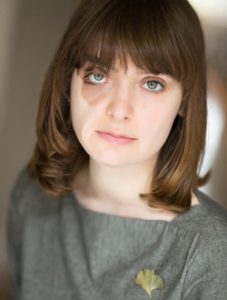 Chelsea Hudson, M.A. in East Asian Languages and Cultures, Columbia University; Ph.D. Candidate in Japanese History, Georgetown University, dissertation title “The Movement and Metamorphosis of Ainu Communities on Hokkaido and Sakhalin.” Most recently, she received a Fulbright IIE Scholarship to conduct thesis research on Hokkaido next year.
Chelsea Hudson, M.A. in East Asian Languages and Cultures, Columbia University; Ph.D. Candidate in Japanese History, Georgetown University, dissertation title “The Movement and Metamorphosis of Ainu Communities on Hokkaido and Sakhalin.” Most recently, she received a Fulbright IIE Scholarship to conduct thesis research on Hokkaido next year.
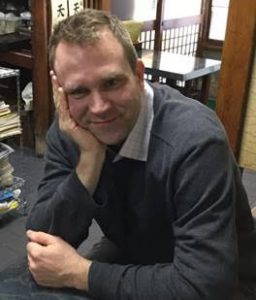 Ian Rapley, DPhil, Japanese Studies, University of Oxford. Lecturer in East Asian History, School of History, Archaeology and Religion, University of Cardiff. Author of “A language for Asia? Transnational encounters in the Japanese Esperanto movement, 1906-1928.” In: Iacobelli, P., Leary, D. and Shinnosuke, T. eds. Transnational Japan as History: Empire, Migration, and Social Movements. Basingstoke: Palgrave Macmillan, 2015.
Ian Rapley, DPhil, Japanese Studies, University of Oxford. Lecturer in East Asian History, School of History, Archaeology and Religion, University of Cardiff. Author of “A language for Asia? Transnational encounters in the Japanese Esperanto movement, 1906-1928.” In: Iacobelli, P., Leary, D. and Shinnosuke, T. eds. Transnational Japan as History: Empire, Migration, and Social Movements. Basingstoke: Palgrave Macmillan, 2015.
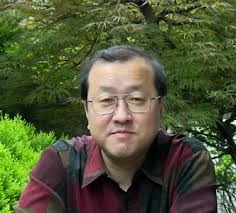 Mitsuyoshi Numano, studied Slavic Languages and Literatures at Harvard & Tokyo University. Professor in Department of Contemporary Literary Studies/ Slavic Languages and Literatures, Graduate School of Humanities and Sociology, University of Tokyo). Author of Sekai Bungaku Kara Sekai Bungaku E: Bungei Jihyō No Katamari 1993-2011. Tōkyō: Sakuhinsha, 2012.
Mitsuyoshi Numano, studied Slavic Languages and Literatures at Harvard & Tokyo University. Professor in Department of Contemporary Literary Studies/ Slavic Languages and Literatures, Graduate School of Humanities and Sociology, University of Tokyo). Author of Sekai Bungaku Kara Sekai Bungaku E: Bungei Jihyō No Katamari 1993-2011. Tōkyō: Sakuhinsha, 2012.
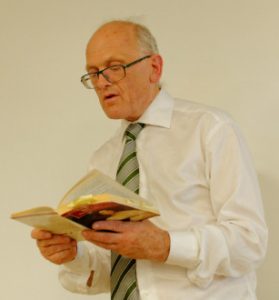 Charles Lock has been Professor of English Literature at the University of Copenhagen since 1996. A Senior Scholar of Keble College, he received his D.Phil. from Oxford in 1982 for a dissertation on John Cowper Powys. In 1979 he was awarded the Laurence Binyon Prize (a University Prize) in the History of Art. He taught for two years at the University of Karlstad, in Sweden, and from 1983 was at the University of Toronto where he was appointed to Full Professor in 1993; he was also adjunct professor at Toronto in Comparative Literature, Russian and East European Studies, Religious Studies and Medieval Studies.
Charles Lock has been Professor of English Literature at the University of Copenhagen since 1996. A Senior Scholar of Keble College, he received his D.Phil. from Oxford in 1982 for a dissertation on John Cowper Powys. In 1979 he was awarded the Laurence Binyon Prize (a University Prize) in the History of Art. He taught for two years at the University of Karlstad, in Sweden, and from 1983 was at the University of Toronto where he was appointed to Full Professor in 1993; he was also adjunct professor at Toronto in Comparative Literature, Russian and East European Studies, Religious Studies and Medieval Studies.
